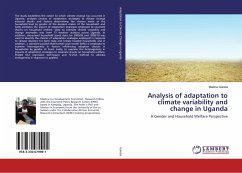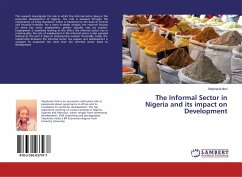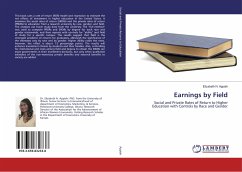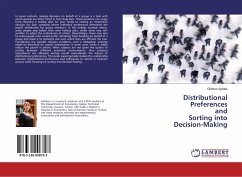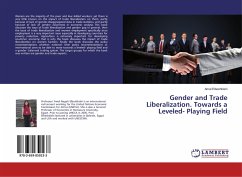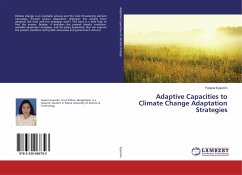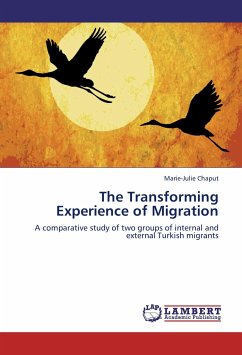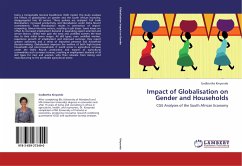The study establishes the extent to which climate change has occurred in Uganda, analyses choices of adaptation strategies to climate change induced shocks and factors determining the choices made at the household level by gender of the decision maker of the household, and lastly estimates the impact of adaptation strategies employed to covariate shocks on household welfare. Data to estimate climate vraiability and change anomalies was from 13 weather stations across Uganda. In addition, micro-level household panel data for 2005/06 and 2009/10 was used to identify the choices of adaptation strategies employed in response to climate disasters for both male and female headed households and in addition, a standard pooled Multinomial Logit model (MNL) is employed to examine heterogeneity in factors influencing adaption choices in households by gender of head. Lastly, to examine the heterogeneity in impacts of adaptation strategies to covariate shocks on household welfare, Pooled OLS regression techniques and IV-2SLS method to address endogeneity in regressors is applied.

